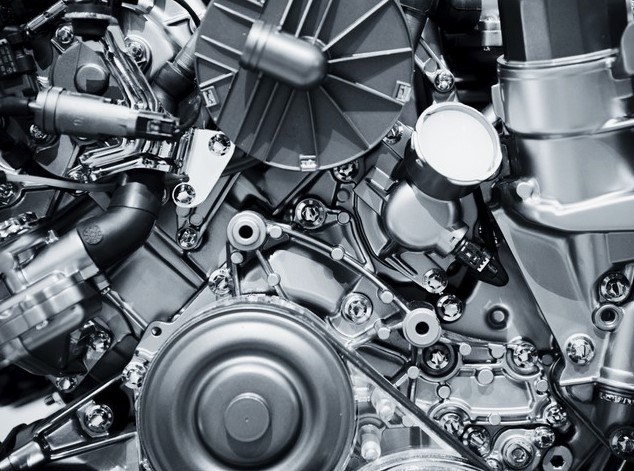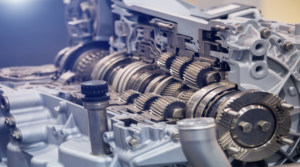What is Polyisobutylene (PIB), and How is it Used in the Automotive Industry?
What is a Transmission Fluid?
Polyisobutylene (PIB), a synthetic polymer derived from isobutylene, has established itself as a crucial material in various industrial applications, particularly in the automotive industry. Renowned for its gas impermeability, chemical resistance, and elasticity, PIB is an essential ingredient in several automotive components and formulations. From improving fuel efficiency to enhancing vehicle durability, its role is multifaceted and indispensable.
Understanding Polyisobutylene (PIB): Composition and Properties
Polyisobutylene is a polymer formed by polymerizing isobutylene monomers. It is available in different molecular weight grades, tailored for specific industrial uses.
Key Properties of PIB:
- Elasticity and Strength: Makes it ideal for dynamic and flexible applications.
- Moisture and Gas Barrier: Highly impermeable, perfect for airtight seals.
- Resistance to Oxidation: Prevents degradation from environmental exposure.
- Thermal Stability: Performs well in extreme temperature conditions.
Its versatility and customizable properties make PIB a material of choice for automotive engineers.
Historical Development of Polyisobutylene
Polyisobutylene has a rich history that dates back to the early 1930s. Initially recognized for its use in tire inner tubes, its utility has expanded significantly over the decades.
Key Historical Highlights:
- 1930s: PIB used for airtight tire inner liners, revolutionizing the rubber industry.
- 1950s: Introduction of PIB-based additives in lubricants and fuels.
- Modern Era: Expanded use in high-performance EV components and advanced adhesives.
Over the years, advancements in polymer chemistry have unlocked new possibilities for PIB in automotive manufacturing.
The Role of Polyisobutylene in Automotive Manufacturing
The automotive industry demands materials that combine performance, reliability, and cost-efficiency. PIB meets these demands by enhancing the functionality and durability of various automotive components.
Why PIB is Essential in Automotive Manufacturing:
- Contributes to long-lasting engine efficiency.
- Provides cost-effective solutions for sealing and bonding.
- Supports compliance with strict environmental regulations.
- Facilitates advancements in electric vehicle (EV) technology.
These qualities position PIB as a cornerstone material in automotive design.
Polyisobutylene in Automotive Seals and Gaskets

Seals and gaskets are critical components in automotive systems, ensuring leak prevention and pressure maintenance. PIB is extensively used to manufacture these components due to its superior sealing capabilities.
Applications in Seals and Gaskets:
- Engine Systems: Ensures efficient operation by preventing oil and gas leaks.
- Transmission Systems: Maintains pressure and prevents fluid contamination.
- Air Conditioning Systems: Keeps refrigerants from escaping, improving efficiency.
Advantages of PIB:
- Enhances durability under thermal and mechanical stress.
- Reduces maintenance costs by prolonging component life.
- Performs consistently across a wide range of temperatures.
PIB’s chemical resistance and elasticity make it an irreplaceable material for seals and gaskets.
The Use of PIB in Lubricant Formulations
PIB plays a vital role in modern lubricants by improving their performance and longevity. It is used in both engine oils and industrial lubricants to optimize efficiency and minimize wear.
Key Contributions of PIB in Lubricants:
- Viscosity Enhancement: Maintains consistency at various temperatures.
- Anti-Sludge Properties: Prevents the buildup of harmful deposits.
- Extended Service Intervals: Reduces the frequency of oil changes, saving time and cost.
How PIB Boosts Engine Performance:
- Minimizes friction, reducing energy loss.
- Protects against oxidation and corrosion.
- Improves cold-start performance, critical in colder climates.
These properties have made PIB a preferred additive in high-performance lubricants.
PIB-Based Adhesives and Coatings for Vehicles
Adhesives and coatings are essential in automotive assembly, where precision and durability are paramount. PIB-based formulations excel in both structural bonding and protective coatings.
Applications of PIB in Adhesives and Coatings:
- Structural Integrity: Ensures strong bonding of dissimilar materials like metal and plastic.
- Weatherproofing: Provides resistance to UV light, moisture, and chemicals.
- Aesthetic Finishing: Creates a smooth, uniform appearance on vehicle exteriors.
Additional Benefits:
- Reduces noise and vibration by dampening movements.
- Improves energy efficiency by reducing drag with aerodynamic coatings.
These features enhance vehicle durability and safety while maintaining a sleek appearance.
Fuel Additives and Emission Reduction
Polyisobutylene’s use as a fuel additive has gained traction for its ability to improve combustion efficiency and reduce emissions. This is particularly relevant in light of stringent environmental regulations.
How PIB-Based Additives Improve Fuels:
- Prevent carbon buildup in the engine, ensuring optimal performance.
- Stabilize fuel combustion, reducing the risk of engine knock.
- Enhance fuel economy by improving engine efficiency.
Impact on Emissions:
- Significantly lowers harmful pollutants such as CO2 and NOx.
- Helps vehicles meet global emission standards, such as Euro 6 and US EPA Tier 3.
PIB is a vital component in creating greener and more efficient automotive solutions.
Polyisobutylene in Electric Vehicle Technology
As the automotive industry transitions toward electric vehicles (EVs), the role of PIB is expanding into new frontiers. Its properties are proving invaluable in addressing unique challenges in EV design and performance.
Emerging Applications of PIB in EVs:
- Thermal Management: Used in cooling systems to maintain optimal battery temperatures.
- Electrical Insulation: Protects sensitive components from electrical damage.
- Lightweight Materials: Contributes to the development of lightweight composites, increasing vehicle range.
Advantages in EVs:
- Enhances energy efficiency by reducing thermal losses.
- Improves the safety and reliability of battery systems.
- Aligns with the industry’s push for sustainable and recyclable materials.
PIB’s adaptability ensures its relevance in the rapidly evolving EV market.
Challenges in Polyisobutylene Applications
Despite its numerous advantages, PIB faces certain limitations and challenges that must be addressed to fully realize its potential.
Challenges in PIB Applications:
- High Production Costs: Manufacturing high-grade PIB requires specialized processes, increasing costs.
- Non-Biodegradability: Its resistance to degradation poses challenges for environmental sustainability.
- Limited Awareness: Many industries are unaware of PIB’s full potential, slowing its adoption.
Efforts to Address These Challenges:
- Development of biodegradable PIB variants.
- Investment in recycling technologies to manage waste.
- Increased collaboration between researchers and industries for innovation.
Overcoming these challenges will unlock new opportunities for PIB in diverse applications.
The Future of Polyisobutylene in the Automotive Industry
The future of PIB is bright, with its applications set to expand further as the automotive industry evolves. Innovations in polymer science and sustainable practices are paving the way for enhanced PIB utility.
Future Trends in PIB Usage:
- Green Manufacturing: Focus on reducing the environmental footprint of PIB production.
- Advanced Materials: Development of PIB-based nanocomposites for next-generation vehicles.
- EV Integration: Greater emphasis on applications in EVs and hybrid technologies.
Potential Innovations:
- Self-healing coatings for vehicle surfaces.
- Intelligent fuel additives that adapt to driving conditions.
- Use in hydrogen fuel cells for enhanced performance.
These advancements will solidify PIB’s position as an essential material in modern and future automotive manufacturing.
Final Thoughts
Polyisobutylene (PIB) stands as a testament to the power of polymer science in transforming industries. Its unique properties, ranging from gas impermeability to chemical resistance, make it a cornerstone material in the automotive sector. Whether enhancing engine efficiency, protecting components, or contributing to electric vehicle advancements, PIB is integral to automotive innovation.
As sustainability and innovation continue to shape the automotive industry, PIB will undoubtedly remain a key player in driving progress and redefining the limits of what is possible.
FAQs
As a fuel additive, PIB prevents the buildup of carbon deposits in engines, stabilizes fuel combustion, and reduces emissions. This leads to cleaner engines and improved fuel economy.

Does Your Car Need High Mileage Oil? (Signs You Should Switch)
Does Your Car Need High Mileage Oil? (Signs You Should Switch) Discover More As vehicles age, their engines undergo significant wear, leading to reduced efficiency and potential breakdowns. One of the most effective ways to maintain an older engine is by switching to high-mileage oil, specially formulated for cars with 75,000 miles or more. But how do you know if your car needs it? What are the key benefits, drawbacks, and alternatives? And why should you consider Ruamnza Xrace Pro Oil for your high-mileage vehicle?

Does Your Diesel Engine Need a Special Oil? (The Truth Revealed)
Does Your Diesel Engine Need a Special Oil? (The Truth Revealed) Discover More When it comes to maintaining a diesel engine, one of the most critical decisions you’ll make is choosing the right oil. Diesel engines operate under extreme conditions—high compression, intense heat, and heavy loads—which means they require a lubricant that can withstand these challenges. But does your diesel engine really need a special oil, or can you use any high-quality motor oil? In this comprehensive guide, we’ll uncover the

What is Anti-Freeze Coolant? Types, Colors & How to Use
What is Anti-Freeze Coolant? Types, Colors & How to Use Discover More Anti-freeze coolant, also known as engine coolant or radiator fluid, is a specially formulated liquid that regulates engine temperature, prevents overheating in summer, and protects against freezing in winter. It is a mixture of water, ethylene glycol or propylene glycol, and chemical additives that enhance engine efficiency and longevity. Without proper coolant, engines can suffer from: Overheating (leading to warped cylinder heads or blown gaskets) Freezing (causing cracked engine blocks in cold climates) Corrosion (damaging radiators,

What is ATF? Types of Transmission Fluid & When to Change It
What is ATF? Types of Transmission Fluid & When to Change It Discover More Transmission fluid is one of the most critical yet often overlooked components in a vehicle’s maintenance routine. Whether you drive an automatic, manual, continuously variable transmission (CVT), or dual-clutch transmission (DCT) vehicle, the right transmission fluid ensures smooth operation, longevity, and peak performance. What is Automatic Transmission Fluid (ATF)? Automatic Transmission Fluid (ATF) is a specialized lubricant designed to reduce friction, cool transmission components, and facilitate smooth

Fuel Injector Cleaner: Does It Really Work? (Analysis, Benefits, and Top Picks)
Fuel Injector Cleaner: Does It Really Work? (In-Depth Analysis, Benefits, and Top Picks) Discover More Modern engines rely on precise fuel delivery to maintain performance, efficiency, and emissions compliance. Fuel injectors play a critical role in this process by atomizing fuel into a fine mist for optimal combustion. However, over time, carbon deposits, varnish, and contaminants can clog injectors, leading to poor engine performance. Fuel injector cleaners are chemical additives designed to dissolve these deposits and restore injector efficiency. But do they
